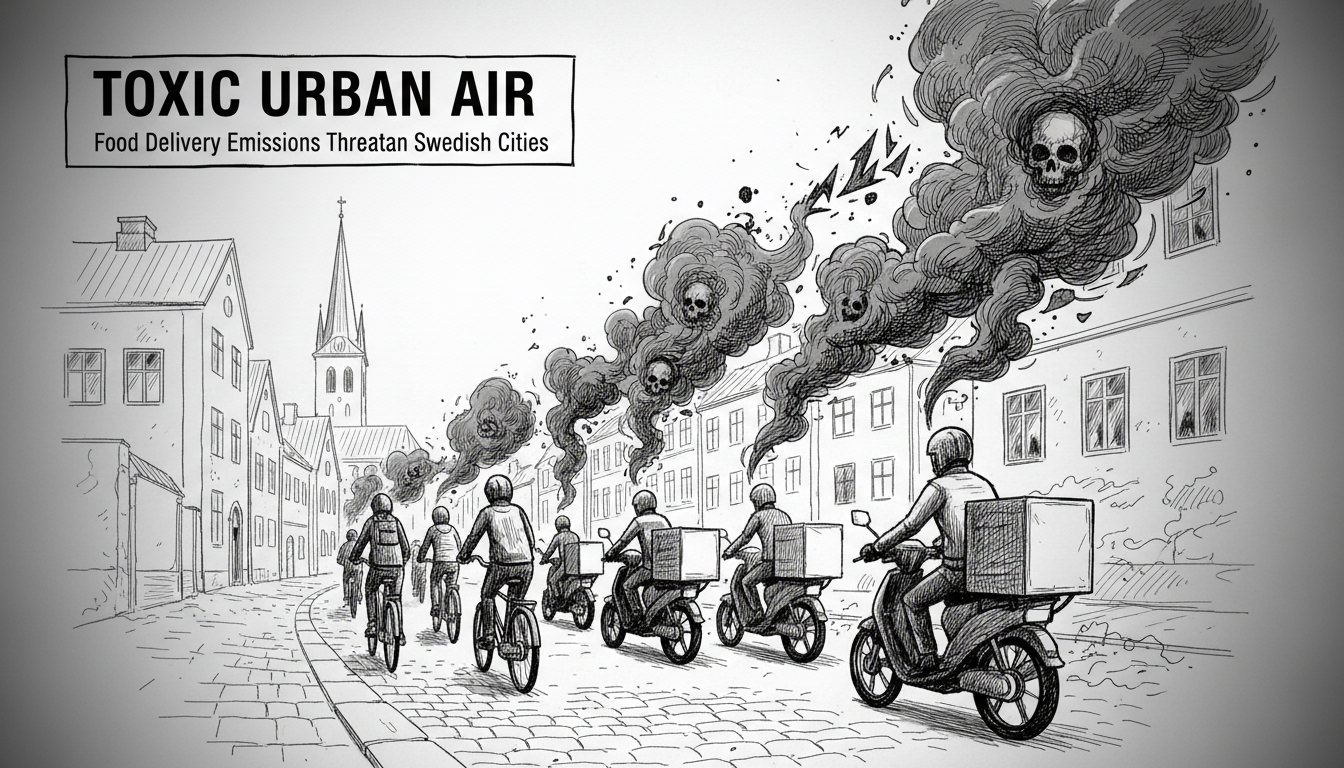New research reveals that following food delivery mopeds in Swedish urban centers poses measurable health risks. Two-stroke engine vehicles emit concerning levels of toxic substances according to air quality studies conducted in major metropolitan areas. These findings carry immediate implications for Swedish government public health policy and urban planning regulations.
Air quality researcher Jenny Lindén stated in research documentation that cyclists should avoid positioning themselves directly behind delivery mopeds. The concentrated emissions from these frequently used delivery vehicles create localized pollution hotspots along bicycle paths and pedestrian zones. This presents a particular challenge for Stockholm politics given the city's commitment to both environmental sustainability and modern convenience services.
The Swedish Parliament has previously addressed urban air quality through various environmental protection measures. Current government policy Sweden regarding vehicle emissions primarily focuses on automobiles and trucks rather than addressing the specific concerns posed by commercial delivery fleets. This regulatory gap becomes increasingly relevant as food delivery services expand their operations across Swedish municipalities.
Research data indicates that two-stroke engines produce disproportionately high emissions compared to their small engine size. These vehicles operate extensively throughout central Stockholm and other urban centers where population density magnifies public exposure. The situation creates a complex policy challenge for transportation and health authorities operating within current Swedish government frameworks.
Environmental regulations typically fall under the jurisdiction of multiple committees within the Riksdag building. Previous Riksdag decisions have established Sweden's reputation for progressive environmental standards, yet this emerging issue highlights how technological and commercial developments can outpace existing regulatory structures. The concentration of delivery services in government districts and residential areas creates particular concern for daily exposure patterns.
Municipal authorities in Stockholm and Gothenburg now face pressure to address this public health concern while balancing economic considerations. The growth of delivery platforms represents both employment opportunities and potential environmental trade-offs. This situation mirrors challenges faced by other European capitals attempting to regulate new economic models while protecting public health standards.
Future policy responses could include updated emission standards for commercial vehicles, restricted operating zones, or incentives for transitioning to electric alternatives. Such measures would require coordination between multiple government agencies and likely necessitate new Riksdag decisions to modify existing environmental legislation. The situation demonstrates how urban air quality management must continuously adapt to changing transportation patterns and commercial activities.

